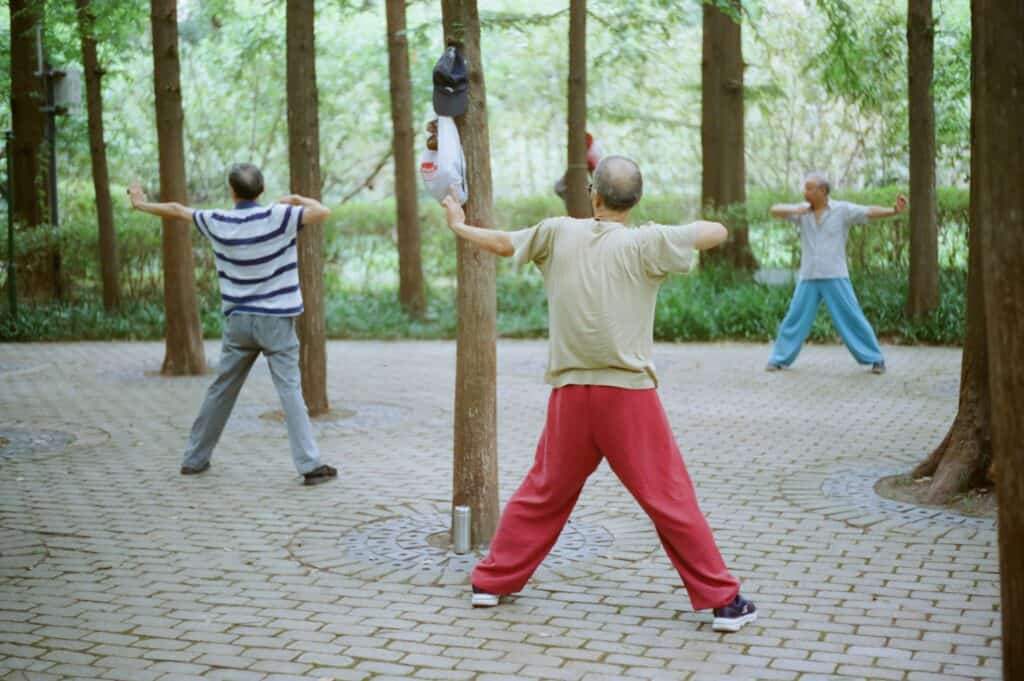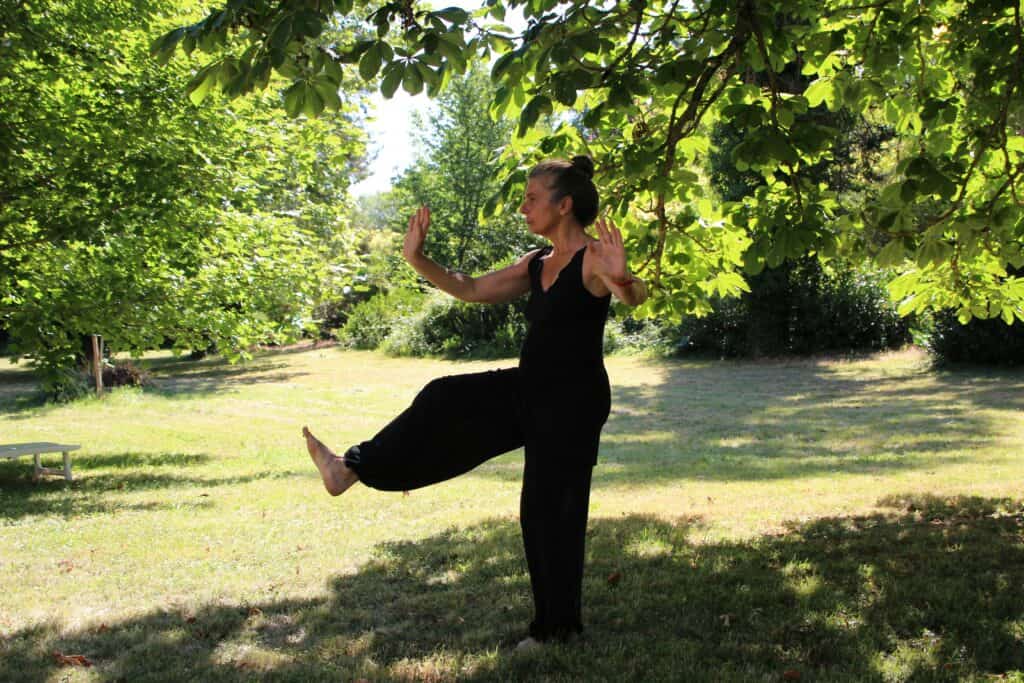In the realm of holistic healing, practices like Qi Gong and Tai Chi have gained attention for their role in enhancing both physical and mental well-being. For individuals on the path to overcoming addiction, these ancient practices offer unique benefits. This article examines Qi Gong vs. Tai Chi, exploring how they serve as effective tools for addiction recovery.
Qi Gong vs. Tai Chi: Understanding Both Practices
Both Qi Gong and Tai Chi originate from ancient Chinese traditions, rooted in the belief that the smooth flow of ‘qi’ or life energy is essential for health and balance. Though they share similarities, each practice has distinct characteristics and approaches.
What is Qi Gong?
Qi Gong is an ancient Chinese exercise and healing technique involving meditation, controlled breathing, and movement exercises. The practice focuses on cultivating and balancing qi. Qi Gong consists of a variety of techniques that aim to enhance the flow of energy in the body, promote relaxation, and improve overall health and well-being. Discover our Qi Gong program designed for recovery.
What is Tai Chi?
Tai Chi, originally developed as a martial art, is now often practiced as a gentle form of exercise and movement meditation. It involves slow, deliberate movements combined with breath control, focusing on improving physical coordination, balance, and relaxation. Tai Chi is known for reducing stress and enhancing mental clarity.

Qi Gong vs. Tai Chi: Differences and Benefits
Although Qi Gong and Tai Chi have similar goals of enhancing well-being, they differ in their execution and emphasis. Exploring these differences can help individuals choose the practice that best suits their needs.
Differences Between Qi Gong and Tai Chi
When it comes to Qi Gong vs. Tai Chi, it’s important to understand the differences between the two. Qi Gong includes a broader range of exercises and may be more static, involving postures held for longer periods, combined with focused breathing and visualization. It’s often meditative in nature and can be tailored to target specific health issues.
Tai Chi is more structured, with set forms involving a sequence of movements performed slowly and with precise control. Tai Chi places a strong emphasis on improving balance and coordination through fluid motions.
Health Benefits of Qi Gong and Tai Chi
Both practices offer a wealth of health benefits. Qi Gong is known to boost immune function, improve circulation, and reduce pain and stress. Tai Chi enhances balance, flexibility, and physical strength, while also reducing anxiety and depression symptoms.
Qi Gong vs. Tai Chi: How Both Practices Can Aid Addiction Recovery
Addiction recovery is a multifaceted journey that requires addressing physical, mental, and emotional health. Integrating practices like Qi Gong and Tai Chi can significantly support this process.
Physical Benefits in Recovery
Qi Gong and Tai Chi promote healing and recovery by enhancing physical health, reducing withdrawal symptoms, and increasing the body’s resilience. The gentle movements improve flexibility and strength, supporting physical recovery and rehabilitation.
Mental and Emotional Support
Both practices incorporate mindfulness, which aids in emotional regulation and stress management. They help improve focus and concentration, reduce anxiety, and provide a calming effect, crucial for maintaining sobriety.
Building Resilience and Mindfulness
Practicing Qi Gong or Tai Chi fosters resilience by teaching individuals how to navigate stress and emotions with calm clarity. The mindfulness cultivated through these practices helps prevent relapse by enhancing self-awareness and emotional balance.
Energy Flow and Balance
At their core, both Qi Gong and Tai Chi work to harmonize the body’s internal energy, or “Qi” (pronounced “chi”). Addiction often disrupts this energy flow, leaving individuals feeling depleted or energetically imbalanced. Through gentle, flowing movements and focused breathing techniques, these practices help to clear stagnation and restore a sense of vitality. This reconnection to energy can serve as a powerful reminder of the body’s innate capacity for healing, offering hope and empowerment during recovery.
Cultivating Stillness and Presence
Addiction often thrives on chaos and a disconnection from the present moment. Qi Gong and Tai Chi emphasize slow, deliberate movements and states of quietude, cultivating an awareness of stillness and presence. This experience of being fully in the moment can act as a counterbalance to the cravings and compulsive behaviors that characterize addiction. It allows individuals to experience a sense of peace and calm that doesn’t rely on external substances, fostering a deeper relationship with the self.
Connection to Nature and Universal Forces
Many Qi Gong and Tai Chi practices are rooted in the natural world, drawing inspiration from the elements, seasons, and cosmic energies. This connection to something larger than oneself can provide a sense of grounding and belonging. For individuals in recovery, reconnecting with these universal forces can instill a renewed appreciation for life and a desire to engage with the world in a more meaningful way.
Ritual and Structure
The practice of Qi Gong and Tai Chi introduces a sense of discipline and routine. Addiction often creates disarray in an individual’s daily life, and incorporating these practices offers a stabilizing influence. Regular practice serves as a ritual that anchors the individual in healthy habits, providing a sense of predictability and control amidst the uncertainties of recovery.
Transforming Inner Awareness
Finally, Qi Gong and Tai Chi encourage practitioners to tune into their internal experiences in a nonjudgmental way. This heightened self-awareness fosters insights into underlying emotional and energetic patterns that contribute to addiction, enabling individuals to address these root causes more effectively.

Qi Gong vs. Tai Chi: Frequently Asked Questions
Here are some of the most frequently asked questions about Qi Gong vs. Tai Chi and their role in addiction recovery:
What are the Key Differences Between Qi Gong and Tai Chi?
The primary differences between Qi Gong and Tai Chi lie in their approaches. Qi Gong involves a variety of exercises and can be more meditative. Tai Chi is a form-based practice focused on movement sequences. Both aim to balance qi but do so through distinct methods.
How Can Both Practices Help with Addiction Recovery?
Qi Gong and Tai Chi support addiction recovery by enhancing physical health, reducing anxiety and stress, and improving emotional regulation. They promote mindfulness, strengthen resilience, and offer non-invasive tools to maintain sobriety.
Which is More Helpful for Battling Substance Abuse: Qi Gong vs. Tai Chi?
Both practices offer unique benefits that can aid in battling substance abuse. The choice depends on individual preferences and needs. Qi Gong may be suited for those seeking a meditative approach, while Tai Chi is ideal for those who prefer structured, movement-based practices.

Qi Gong vs. Tai Chi: Integrating Both Practices for Addiction Recovery
So when it comes to Qi Gong vs. Tai Chi, are both helpful on your road to recovery? Incorporating Qi Gong and Tai Chi into your addiction recovery plan can provide physical, mental, and emotional benefits that support a balanced and healthy lifestyle. By promoting mindfulness and resilience, these practices empower individuals to navigate their recovery journey with greater clarity and strength. Whether you choose Qi Gong, Tai Chi, or both, these ancient disciplines offer transformative tools that enhance your path to sobriety.
Qi Gong vs. Tai Chi: Find Exciting and Holistic Practices at Knoxville Recovery Center
At Knoxville Recovery Center, we are proud to offer Qi Gong as an integral part of our holistic approach to addiction recovery. This ancient Chinese practice, which combines gentle movements, focused breathing, and meditation, is a transformative tool for healing and renewal.
Qi Gong helps individuals reconnect with their inner vitality by working with the body’s natural energy flow, known as “Qi.” Through guided sessions led by experienced instructors, clients learn to cultivate this energy, clearing blockages and restoring balance. This process nurtures a profound sense of harmony within the body, mind, and spirit—essential for overcoming the challenges of addiction.
Addiction often leaves individuals feeling disconnected from themselves and their environment. Qi Gong fosters a reconnection to life’s natural rhythms and cycles, offering a gentle yet powerful way to rediscover inner peace. By engaging in this practice, clients experience a heightened sense of awareness and presence, enabling them to confront cravings and triggers with newfound resilience.
Our Qi Gong sessions are designed to complement other therapeutic modalities, providing a structured, calming practice that supports the recovery journey. Whether you are taking your first steps toward healing or strengthening your ongoing recovery, Qi Gong offers a sanctuary for growth and renewal.
Join us at Knoxville Recovery Center to experience the profound healing power of Qi Gong. Together, we’ll help you reclaim your energy, rebuild your strength, and rediscover the vibrant life you deserve. For more information about our holistic practices for addiction recovery, contact us or give us a call today.








